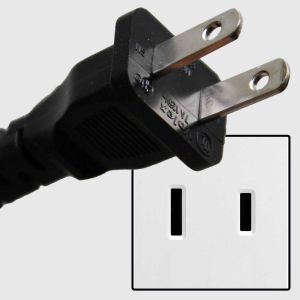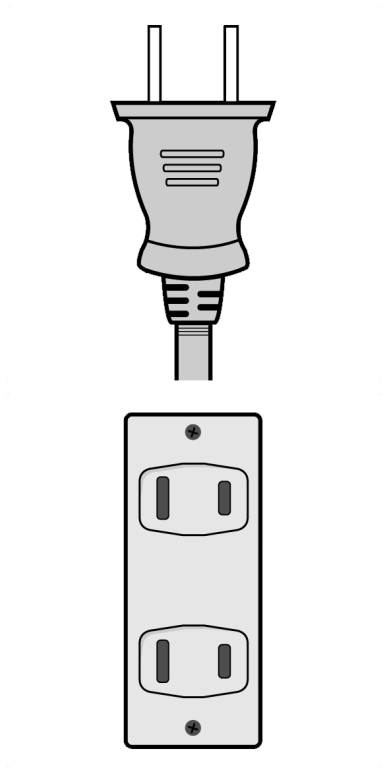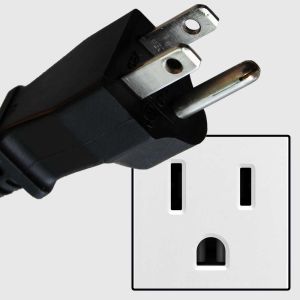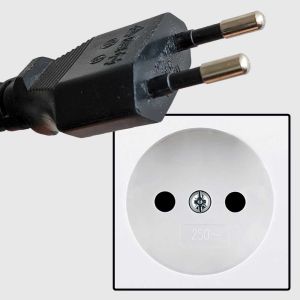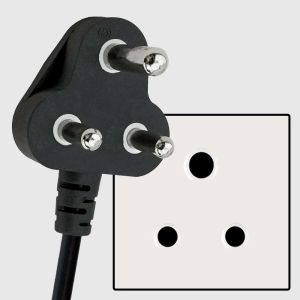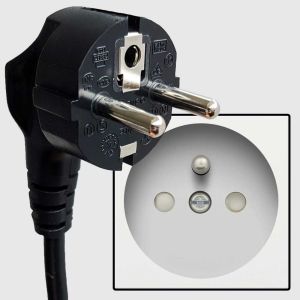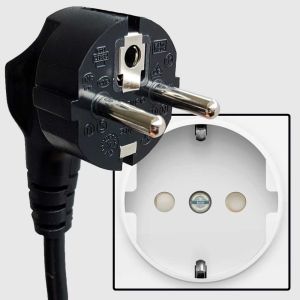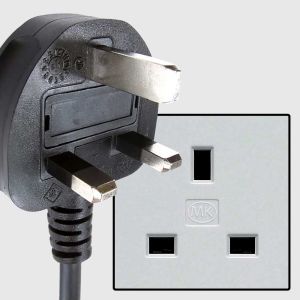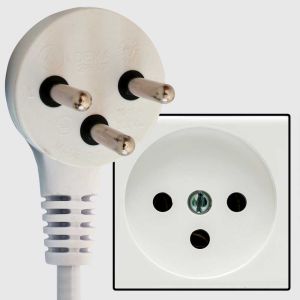曾工致力于各类电子电器产品的国际国内认证、EMC整改,欢迎各位询价,提供专业服务,解决客户痛点!专治各种产品不合格!
电话:139 2899 3907 邮箱:info@emc.wiki
World plugs
Plug Type A
Used in: North and Central America, Japan
The Type A electrical plug (or flat blade attachment plug) is an ungrounded plug with two flat parallel pins. Although the American and Japanese plugs appear identical, the neutral pin on the American plug is wider than the live pin, whereas on the Japanese plug both pins are the same size. As a result, Japanese plugs can be used in the US but often not the other way around.
The pins on Type A and Type B plugs have a hole near the tip that fits into ‘bumps’ found on the contact wipers of some sockets, so that the pins are gripped more tightly allowing for better contact and also to prevent the plug from slipping out of the socket. Some sockets have spring-action blades that grip the sides of the pins, making the holes obsolete.
Plug type A By IEC
Plug Type B
Used in: North and Central America, Japan
The Type B electrical plug has two flat parallel pins and a round grounding (or earth) pin. The earth pin is longer than the other two so that the device is grounded before the power is connected. As with the type A plugs, the American and Japanese versions vary slightly.
Type B plugs are rated at 15 amps.
Plug type B by IEC
Plug Type C
Used in: Europe, with the exception of the UK, Ireland, Cyprus and Malta
The Type C electrical plug (or Europlug) is a two-wire plug that has two round pins. It fits into any socket that accepts 4.0 – 4.8 mm round contacts on 19 mm centres. They are being replaced by E, F, J, K or N sockets which work perfectly with Type C plugs.
Type C plugs are generally limited for use in appliances that require 2.5 amps or less.
Plug Type C by IEC
Plug Type D
Used in: India, Sri Lanka, Nepal, Namibia
The Type D electrical plug has three large round pins in a triangular pattern. Type M plugs are often used alongside Type D plugs for larger appliances and as a result, some sockets work with both Type D and Type M plugs.
Type D plugs are rated 5 amps.
Plug Type D by IEC
Plug Type E
Used in: France, Belgium, Slovakia and Tunisia among others
The Type E electrical plug has two 4.8 mm round pins spaced 19 mm apart and a hole for the socket's male earthing pin. The Type E plug has a rounded shape and the Type E socket has a round recess. Type E plugs are rated 16 amps.
Note: The CEE 7/7 plug was developed to work with Type E and Type F sockets with a female contact (to accept the earthing pin of the Type E socket) and has earthing clips on both sides (to work with Type F sockets).
Plug Type E by IEC
Plug Type F
Used in: Germany, Austria, the Netherlands and Spain among others
The Type F electrical plug (also known as a Schuko plug) has two 4.8 mm round pins spaced 19 mm apart. It is similar to the Type E plug but has two earth clips on the side rather than a female earth contact. The CEE 7/7 plug was developed to work with sockets E and F and has grounding clips on both sides (to work with Type F sockets) and a female contact (to accept the grounding pin of the type E socket).
Type F plugs are rated 16 amps.
Plug Type F by IEC
Plug Type G
Used in: UK, Ireland, Cyprus, Malta, Malaysia, Singapore, Hong Kong
The Type G electrical plug has three rectangular blades in a triangular pattern and has an incorporated fuse (usually a 3 amps fuse for smaller appliances such as a computer and a 13 amps one for heavy duty appliances such as heaters). British sockets have shutters on the live and neutral contacts so that foreign objects can’t be introduced into them.
Plug Type G by IEC
Plug Type H
Used in: Israel
The Type H plug is unique to Israel and has two flat pins in a V-shape as well as a grounding pin. It is however currently being phased out in favour of a round-pinned version. The holes in Type H sockets are wide in the middle so as to accommodate the round-pinned version of the Type H plug as well as Type C plugs.
